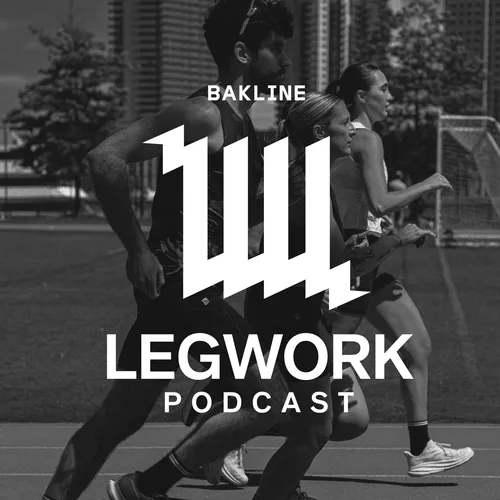05 - The When, How, And Why of Hiring A Running Coach
- Author
- Bakline Running
- Published
- Tue 02 Sep 2025
- Episode Link
- https://podcasters.spotify.com/pod/show/bakline-production/episodes/05---The-When--How--And-Why-of-Hiring-A-Running-Coach-e37knpm
A practical guide to hiring a running coach — when to seek one, how to choose and work with one confidently, and why they can make all the difference.
Most runners think about hiring a coach only when they’re chasing a big PR or a major race. But the reality is that coaching isn’t just for elites, and it isn’t just about getting faster. The right coach at the right time can help you break through plateaus, return from setbacks with confidence, or simply take the decision fatigue out of training. And while coaching can be transformative, not every coach–athlete match works—knowing what to look for (and what to avoid) can make all the difference.
Episode Description
In this episode of Legwork, Matt and Molly take a practical look at the when, how, and why of hiring a running coach. Drawing on their own experiences as athletes and coaches, they explore what makes the coaching relationship truly valuable beyond the plan itself—and how runners can get the most out of it.
They walk through the key parts of the process:
Why runners hire coaches — from chasing performance goals to wanting structure, support, or accountability
Common barriers to hiring — cost, feeling like you're not worthy of coaching or that you need to be faster, or the social elements of running with a club or with your friends (all of which a good coach can help you manage and feel confident)
What coaches can (and can’t) do — from individualized plans and race strategy to dispelling myths about gait analysis (which really can't be done visually) or “magic workouts”
How to evaluate a coach — key questions to ask, understanding certifications, and exploring what experience they have with people like you
How to be coachable — building trust, communicating openly, and knowing when it might be time to move on
Red flags to watch for — warning signs that a coaching relationship may not be the right fit
Whether you’re considering coaching for the first time, thinking about switching coaches, or simply looking to get more from the relationship you already have, this episode gives you the tools to approach coaching with clarity and confidence.
Chapters
00:00 Our First Interaction With A Coach in High School
06:18 The Why, When, and How of Finding A Coach - Our Agenda
07:59 All The Reasons Runners Might Hire A Coach - Good And Bad
16:47 Primary Drivers Behind What Prevents us or is a Barrier to Hiring a Coach
26:11 How Coaches Can Help Athletes
33:31 Coaching Can Help In Understanding How Running Should Feel And Integrating Strength
39:40 The Role of Coaches in Race Planning
41:37 Setting Expectations: Things Coaches Can't Do (Like Visual Gait Analysis)
51:17 Setting Expectations: There is No Magic Workout or Secret Sauce
53:50 Communicating What We Want and Need Out of Coaching
01:04:48 Questions You Should Ask A Potential Coach
01:10:35 Evaluating Coach Qualifications and Certifications
01:22:47 How to Be A Coachable Athlete
01:33:38 Identifying Red Flags in Coaching Relationships
01:42:54 When It Might Be Time To Leave A Coach
Key Takeaways
Coaching is about more than a plan. An individualized workout schedule is the bare minimum. The true value comes from problem-solving and helping athletes maximize training around the realities of life.
Know your reasons for hiring a coach. Performance goals, structure, accountability, or breaking plateaus are all valid motivations—but intrinsic motivation matters most.
Set realistic expectations. Coaches can’t provide magic workouts or fix biomechanics with a glance. What they can do is help you train smarter.
Evaluate both sides of the relationship. Ask potential coaches about their philosophy, experience with athletes like you, and how they stay current. Be honest with yourself about what you need.
Watch for red flags and know when to move on. Signs include coaches who don’t listen, insist on absolutes (“everyone must run 180 cadence”), take credit for your success but dodge responsibility for setbacks.
